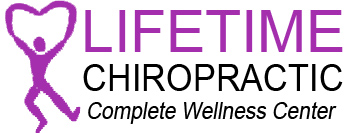 Colic is a condition that usually appears between the 3rd and 6th week after birth, and is characterized by excessive crying. Most cases resolve after 3 months old. Babies with colic can often be seen drawing their arms and legs in as though in pain, and may turn bright red. It is not known exactly what causes colic, but it is thought that certain conditions may contribute to it, such as an immature and irritated nervous system, food sensitivities, and gastrointestinal upset.
Colic is a condition that usually appears between the 3rd and 6th week after birth, and is characterized by excessive crying. Most cases resolve after 3 months old. Babies with colic can often be seen drawing their arms and legs in as though in pain, and may turn bright red. It is not known exactly what causes colic, but it is thought that certain conditions may contribute to it, such as an immature and irritated nervous system, food sensitivities, and gastrointestinal upset.
As the state of the spine affects the nervous system, gentle chiropractic adjustments are one suggested course of action, and babies with colic treated by chiropractic frequently show improvement as the spinal irritation eases. Given the traumatic experience of child birth, it is not surprising that babies may experience spinal subluxations that cause problems with their delicate nervous systems. Colic is also seen to provoke an increased need for attention in babies, and more sensitivity to the world around them, both of which suggest a neurological cause.
Colic may also be the result of the diet of both mother and baby. Cow’s milk and other dairy products are one of the chief offenders in the development of colic. Human milk and cow’s milk are not at all interchangeable, and cow’s milk is not a suitable substitute. Cow’s milk contains the sugar lactose which is difficult for newborn babies to digest, plus many proteins that are detrimental to a young digestive system.
Similarly, the food that a baby ends up absorbing from natural breastfeeding may cause colic if the mother is indulging in unsuitable foods, such as those that are spicy or dairy-based. It hopefully goes without saying that alcohol and tobacco should be totally out of the question for a breastfeeding mother. The best diet is one that is quite bland, and high in (non-dairy) protein, at least for the first three or four months of breastfeeding.
If your baby suffers from colic, here is some helpful advice:
- Seek regular chiropractic treatment for your baby, especially in the first 4 months
- A warm water bottle on your baby’s stomach is soothing, as is a warm bath
- Rock your baby in a chair or cradle, or take them out in a car seat for a drive
- Gently rub your baby’s stomach
- Smaller, more regular feedings may help
- If using baby formula, avoid dairy or soy-based products
For Your Health,
Dr. Patrick Chenoweth
